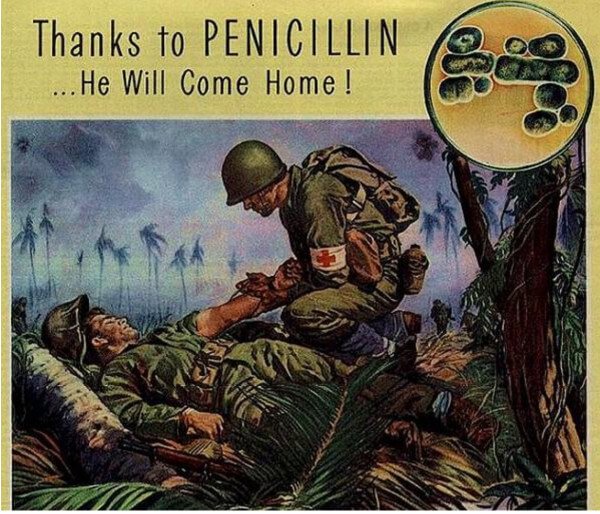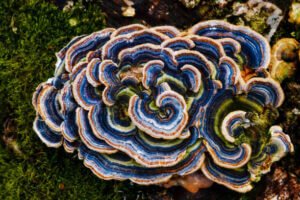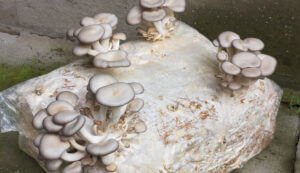Mushroom is more diverse and complex than it seems, mysterious and unknown, but they have the ability to influence our lives in unexpected ways, one of the most prominent displays of that ability takes us to a place that is unlikely, the invention of antibiotics was a game changer, for medicine and mankind, and we all owe it to fungi.`
War against bacteria
After the outbreak of World War I in 1914, the famous Scottish doctor volunteered “Alexander Fleming” to work in the British Armed Forces, to be a medical officer in Royal Medical Services, during the war he noticed falls many wounded and injured who suffer, the most suffering from the effects of wounds as a result of the accumulation of bacteria that poisoned the blood and expose the infected to the most serious diseases and eventually lead to their deaths, so when the war ended and Dr. Fleming returned to St. Mary’s hospital was determined to find a drug that would help relieve the pain of people with bacteria.
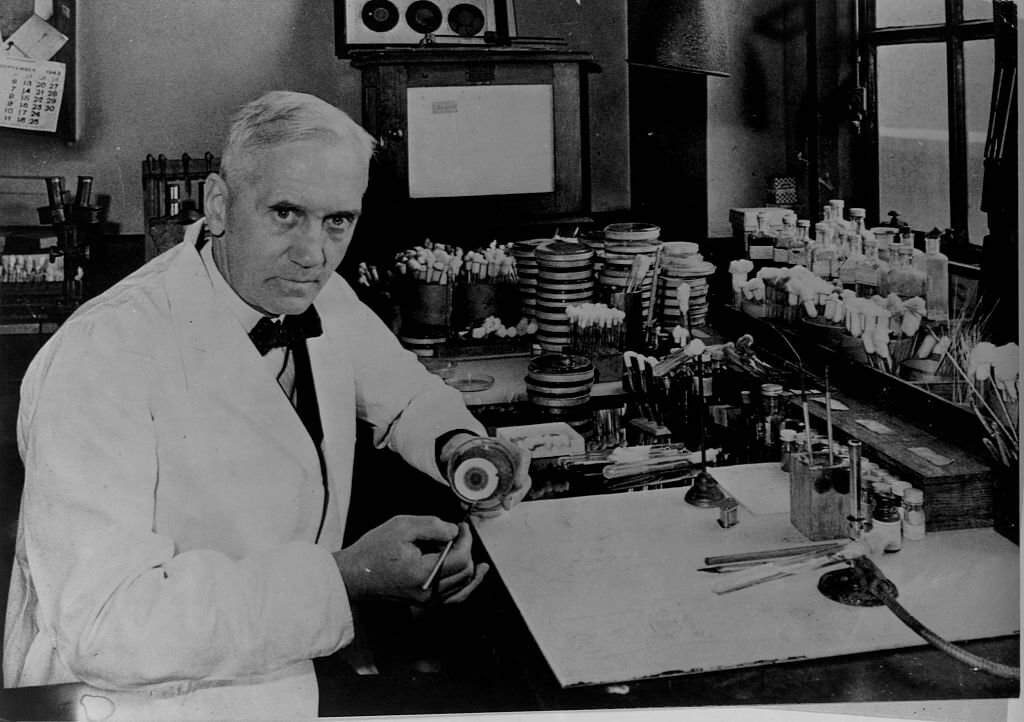

From strange mold to Wonder Drug
In September 1928, Alexander Fleming was carrying out research at St. Mary’s where he was studying the bacterium “Staphylococcaceae” before heading on holiday leaving microbes in a food-based agar plate, expected to grow and develop while away.
The importance is not lost on Fleming. This may be a new way to fight bacterial infection within the human body. This is how the world’s first antibiotic, Penicillin, was discovered. This happened only thanks to some small spores of fungi carried with the breeze. After the outbreak of World War II, scientists continued to try to extract penicillin in a way that helps to spread it.

When Fleming returned from his holiday he noticed something strange that had happened, as his sample of bacteria was dead, and he replaced it with a layer of mold just like that mold that happens to bread, it was completely destroyed by fungi, Fleming was captivated by what happened, and he wondered why these bacteria were killed around the area around the mold. He realized it was fungus spores, it must have landed out of the window on rental dishes, and it quickly began to Feeding on the content of the plate, eventually killing bacteria.
Evolution of penicillin
The first human experience was in 1941 at Oxford University Hospital, where a Pollis man lying in the hospital had been neglected in his treatment. Circulation had been poisoned, his heat had risen and he was in a coma waiting to die. At that time, doctors were able to extract a certain amount of penicillin sufficient to fill a small teaspoon with enormous costs and great difficulty.
As a last attempt, doctors decided to inject the patient in this amount, penicillin was miraculously born and the patient’s condition improved and his temperature decreased, but because there was insufficient quantity to complete the treatment, they could not save him and he died.

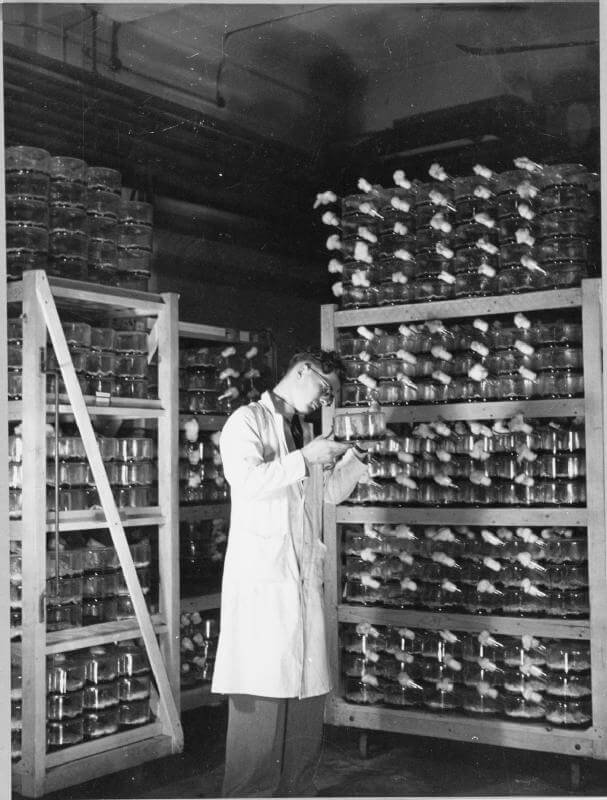
Expansion of production in the United States of America
After that incident, the British Government, using the United States of America to extract penicillin from fungal fluid, made experiments that help produce it in large quantities, after their success in achieving this goal, came down. “Penicillin” on the battlefield, literally saved tens of thousands of soldiers’ lives, and his fame escalated when Mr. Churchill was injured and treated with “pneumonia“, treated with penicillin, as used in treatment “Diphtheria” and “gonorrhea” are these diseases that have been plaguing the world for years.
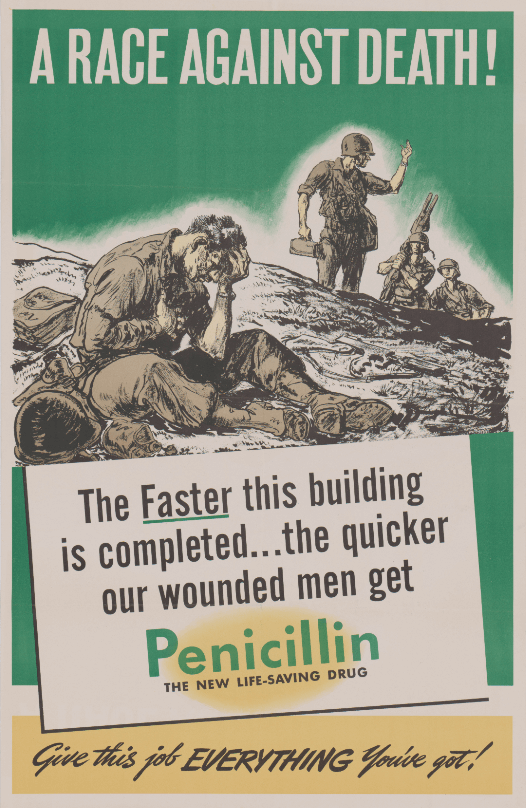
It was a credit to fungi.
Like penicillin is produced by fungi like all kinds of enzymes, seems to be chemical warfare, to fight and compete with other organisms for food, such as bacteria, viruses, and other fungi, which makes antibiotics effective. The chemical substances released from fungi, such as penicillin, are excreted by fungi to kill competitors, and when we take them, it kills bacteria inside us.
The British and Americans had penicillin, not the Germans and the Japanese. it was suggested that the success of Britain and America in harnessing a strain of “penicillin” in large quantities had a major impact in winning World War II, and then Fleming was awarded the Nobel Prize in 1945 for presenting the greatest drug in history of modern medicine.
While receiving his prize, Fleming said, “Wherever you go, people thank me for saving their lives… I didn’t do anything. God mocked nature for making penicillin… By accident, I found him “
